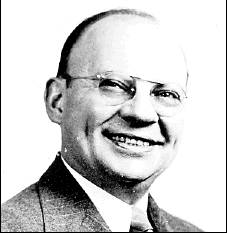Say the names of loved ones, and remember, always
By Sally Friedman
For the first awful days after my father died many years ago, people around me had various ways of dealing with my loss.
Some never once mentioned my father when they visited to pay condolences. They mentioned everything else, including, as I recall, the weather. But never once did they speak of the man I was mourning.
Others did something I will never forget and for which I will always be grateful:
They allowed me the luxury of talking about my dad.
They mentioned him by name.
They asked questions.
But in general, ours is such a peculiar culture when it comes to death and loss. While we speak of the unspeakable on lurid talk shows — and films leave absolutely nothing to the imagination — death is the ultimate cultural taboo.
So we dance around it, deny it, avoid speaking of it.
And when we are faced with those who are grieving, we don’t know what to do or say. Like those infamous experimental rats darting about in their mazes, we seek a safe corner, at least in symbolic terms.
In Judaism, we “sit shivah.” We welcome visitors, offer food, and theoretically find comfort from them and with them.
But I have been to shivahs that felt so much like parties, with laughter and chatter and all the social trappings, that I wanted to bolt. It felt so wrong.
I also have been to shivahs with deep and powerful meaning, with prayers and remembrances that have felt so right.
And then there’s the time limits we impose.
Grieving, our culture seems to command, is finite. It has a starting point and an ending point. And if we indulge those who mourn, we indulge them on a schedule.
The general grieving license seems to run out in about a year. One year!
One Thanksgiving.
One marking of the birthday of the one we loved who is gone.
One spring.
One fall.
Enough? Of course not.
Forever, for some of us, is still not enough.
I remember visiting a friend who had lost a beloved son and who saw to it that there would be no “allotted” time for her grief.
She was brave enough to remind us that, sometimes, she needed us to say his name. She was not about to let that curtain descend on his existence, as if he never was.
Her lessons stuck with me, just as the ones from another friend who had lost her husband after a long marriage.
How hurt she was when well-meaning friends urged her to start “getting over it,” to “move on.” But she was emphatic, and she let us know that, years later, there was still a dense cloud of loss.
Her message was that it hurt to bury her late husband’s memory in silence, because, as she expressed it, silence buries the dead again.
For years, I have marked the anniversary of both my parents’ deaths — my mother’s came decades after my father’s — just as I mark other personal milestones. And not all milestones are joyous ones.
I light a memorial candle and I cry on these days of loss — my father’s in April, just when spring bursts forth and nature sings; my mother’s deep in winter, when the Earth is without color.
I often need time to be alone. I remember.
And yes, I sometimes need to talk about my father and mother — and to hear them spoken of.
I cannot forget. I don’t want to forget.
So I talk about Lillian and Hymen Schwartz.
To my husband, my sister.
To my children and my grandchildren.
“Say their names,” Isometimes ask of them.
And I hope they do.
Sally Friedman is a writer inMoorestown. pinegander@aol.com

No comments:
Post a Comment